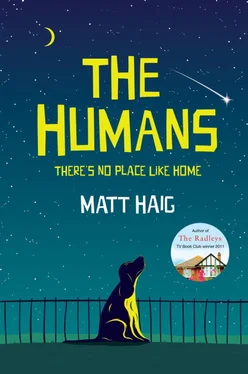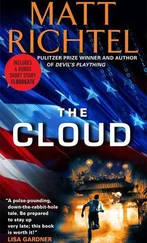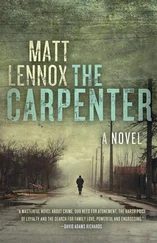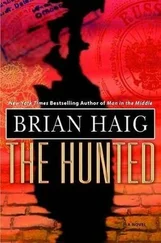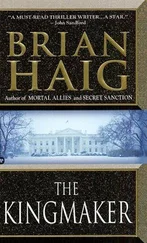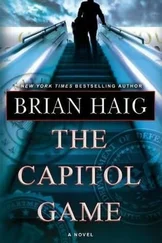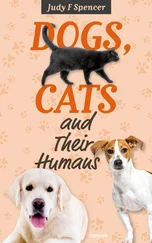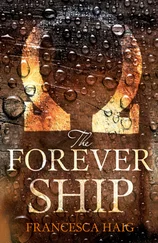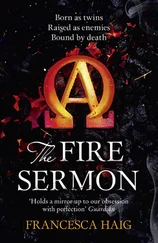‘Hey, what are you doing? Fuck off away from my lorry.’
I ran away, my bare feet hitting hard ground scattered with random pieces of grit. And then I was on grass, running across a field, and I kept on in the same direction until I reached another road. This one was much narrower and had no traffic at all.
I opened the map, found the line which matched the curve of this other road and saw that word: ‘Cambridge’.
I headed there.
As I walked and breathed in that nitrogen-rich air the idea of myself was forming. Professor Andrew Martin. With the name, came facts sent across space by those who had sent me.
I was to be a married man. I was forty-three years old, the exact mid-point in a human life. I had a son. I was the professor who had just solved the most significant mathematic puzzle the humans had ever faced. I had, only three short hours ago, advanced the human race beyond anyone’s imagining.
The facts made me queasy but I kept on heading in the direction of Cambridge, to see what else these humans had in store for me.
I was not told to provide this document of human life. That was not in my brief. Yet I feel obliged to do so to explain some remarkable features of human existence. I hope you will thereby understand why I chose to do what, by now, some of you must know I did.
Anyhow, I had always known Earth was a real place. I knew that, of course I did. I had consumed, in capsule form, the famous travelogue The Fighting Idiots: My Time with the Humans of Water Planet 7,081 . I knew Earth was a real event in a dull and distant solar system, where not a great deal happened and where travel options for the locals were severely limited. I’d also heard that humans were a life form of, at best, middling intelligence and one prone to violence, deep sexual embarrassment, bad poetry and walking around in circles.
But I was starting to realise no preparation could have been enough.
By morning I was in this Cambridge place.
It was horrendously fascinating. The buildings were what I noticed first, and it was quite startling to realise that the garage hadn’t been a one-off. All such structures – whether built for consumerist, habitative or other purposes – were static and stuck to the ground .
Of course, this was meant to be my town. This was where ‘I’ had lived, on and off, for over twenty years. And I would have to act like that was true, even though it was the most alien place I had ever seen in my life.
The lack of geometric imagination was startling. There was not so much as a decagon in sight. Though I did notice that some of the buildings were larger and – relatively speaking – more ornately designed than others.
Temples to the orgasm , I imagined.
Shops were beginning to open. In human towns, I would soon learn, everywhere is a shop. Shops are to Earth-dwellers what equation booths are to Vonnadorians.
In one such shop I saw lots of books in the window. I was reminded that humans have to read books. They actually need to sit down and look at each word consecutively. And that takes time. Lots of time. A human can’t just swallow every book going, can’t chew different tomes simultaneously, or gulp down near-infinite knowledge in a matter of seconds. They can’t just pop a word-capsule in their mouth like we can. Imagine! Being not only mortal but also forced to take some of that precious and limited time and read. No wonder they were a species of primitives. By the time they had read enough books to actually reach a state of knowledge where they can do anything with it they are dead.
Understandably, a human needs to know what kind of book they are about to read. They need to know if it is a love story. Or a murder story. Or a story about aliens.
There are other questions, too, that humans have in bookstores. Such as, is it one of those books they read to feel clever, or one of those they will pretend never to have read in order to stay looking clever? Will it make them laugh, or cry? Or will it simply force them to stare out of the window watching the tracks of raindrops? Is it a true story? Or is it a false one? Is it the kind of story that will work on their brain or one which aims for lower organs? Is it one of those books that ends up acquiring religious followers or getting burned by them? Is it a book about mathematics or – like everything else in the universe – simply because of it ?
Yes, there are lots of questions. And even more books. So, so many. Humans in their typical human way have written far too many to get through. Reading is added to that great pile of things – work, love, sexual prowess, the words they didn’t say when they really needed to say them – that they are bound to feel a bit dissatisfied about.
So, humans need to know about a book. Just as they need to know, when they apply for a job, if it will cause them to lose their mind at the age of fifty-nine and lead them to jump out of the office window. Or if, when they go on a first date, the person who is now making witticisms about his year in Cambodia will one day leave her for a younger woman called Francesca who runs her own public relations firm and says Kafkaesque without having ever read Kafka.
Anyway, there I was walking into this bookshop and having a look at some of the books out on the tables. I noticed two of the females who worked there were laughing and pointing towards my mid-section. Again, I was confused. Weren’t men meant to go in bookshops? Was there some kind of war of ridicule going on between the genders? Did booksellers spend all their time mocking their customers? Or was it that I wasn’t wearing any clothes? Who knew? Anyway, it was a little distracting, especially as the only laughter I had ever heard had been the fur-muffled chuckle of an Ipsoid. I tried to focus on the books themselves, and decided to look at those stacked on the shelves.
I soon noticed that the system they were using was alphabetical and related to the initial letter in the last name of each author. As the human alphabet only has 26 letters it was an incredibly simple system, and I soon found the Ms. One of these M books was called The Dark Ages and it was by Isobel Martin. I pulled it off the shelf. It had a little sign on it saying ‘Local Author’. There was only one of them in stock, which was considerably fewer than the number of books by Andrew Martin. For example, there were thirteen copies of an Andrew Martin book called The Square Circle and eleven of another one called American Pi . They were both about mathematics.
I picked up these books and realised they both said ‘£8.99’ on the back. The interpolation of the entire language I had done with the aid of Cosmopolitan meant I knew this was the price of the books, but I did not have any money. So I waited until no one was looking (a long time) and then I ran very fast out of the shop.
I eventually settled into a walk, as running without clothes is not entirely compatible with external testicles, and then I started to read.
I searched both books for the Riemann hypothesis, but I couldn’t find anything except unrelated references to the long-dead German mathematician Bernhard Riemann himself.
I let the books drop to the ground.
People were really beginning to stop and stare. All around me were things I didn’t quite yet comprehend: litter, advertisements, bicycles. Uniquely human things.
I passed a large man with a long coat and a hairy face who, judging from his asymmetrical gait, seemed to be injured.
Of course, we may know brief pain, but this did not seem of that type. It reminded me that this was a place of death. Things deteriorated, degenerated, and died here. The life of a human was surrounded on all sides by darkness. How on Earth did they cope?
Читать дальше
